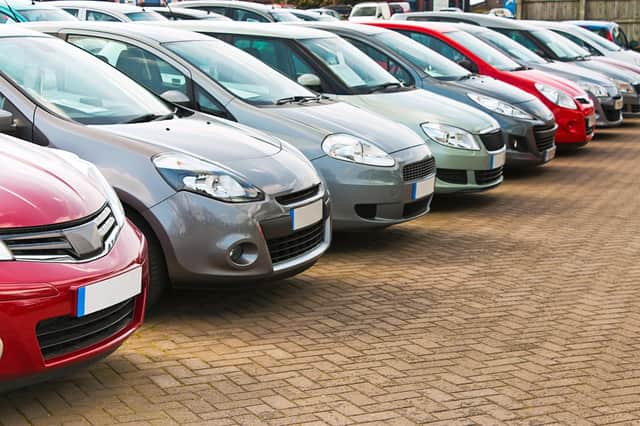Citizens Advice: Steps to take when buying a used car


Kirklees Citizens Advice & Law Centre chief executive Nick Whittingham writes:
Buying a car is a major purchase and whether it’s new or second-hand, the process can seem daunting and complicated.
There’s lots of information on the steps to take when buying a car and what to do if something goes wrong on the Citizens Advice website.
Where are you going to buy the car?
If you’re buying from a trader, choose a trustworthy one with an established name and good reputation.
Ideally, they will be part of a trade association, or follow the industry’s code of practice.
If you’re buying via auction, it’s riskier as you’ll have fewer legal protections like the right to returns or refunds so carefully read the terms and conditions beforehand.
If you buy from a private seller, there’s a few extra steps.
For instance, try to inspect the car at their home address so if something goes wrong later, you have a record of that.
Make sure the car’s details are correct by using the DVLA’s free online vehicle information checker.
You’ll need the registration number, MOT test number, mileage and make/model of the car to do this.
Also, check the car’s MOT history for free on gov.uk.
Keep a copy of both these results and the original advert of the car.
You might consider getting a private history check to see if the car’s reported stolen, has money owing on it, or has been in a serious crash.
This will cost about £20.
Inspecting the car is crucial before buying.
Ideally, do this during the day when it’s not raining (scratches are harder to see on a wet car) and take it for a test drive for at least 15 minutes on different types of road, if possible.
Check you have the right insurance for a test drive (your own, or the seller’s policy might cover you).
Once you’ve decided, don’t be afraid to negotiate on the price.
If you take out a loan or finance, make sure you can afford the repayments over the lifetime of the contract.
If you pay with cash, you will have fewer protections than options like debit.
Despite doing all these checks, you might find something wrong with the car after you’ve bought it.
You may have a legal right to a repair, the cost of a repair, or some money back, but it’s on a case-by-case basis.
If you would like to speak to the Consumer Helpline, call 0808 223 1133.
If you’d like to speak to Kirklees Citizens Advice and Law Centre about an issue, call us on 0808 278 7896 (Freephone) or visit us at our contact centres in Dewsbury and Huddersfield.
More information can be found at http://www.kcalc.org.uk.